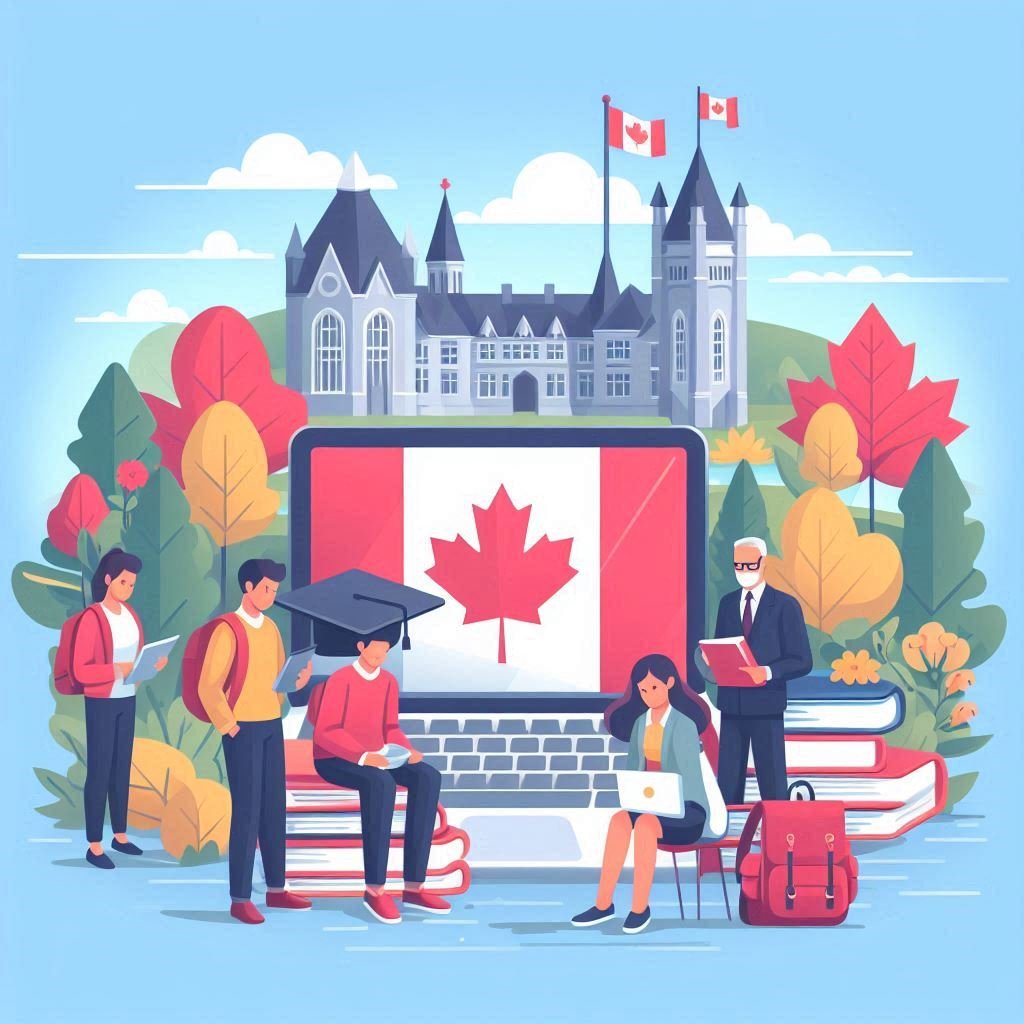Introduction and Key Takeaways
Immigration, Refugees and Citizenship Canada (IRCC) is the government department responsible for issuing visas to foreign nationals who want to visit, work, study, or immigrate to Canada. Whether you’re planning a short-term trip or a permanent move, understanding the different types of visas available and the application process is crucial.
In this comprehensive guide, we’ll cover everything you need to know about IRCC Canada visas, including:
- The different types of visas available, such as visitor visas, work permits, study permits, and permanent residence
- Eligibility requirements for each type of visa
- The application process and required documents
- Processing times and fees
- Tips for increasing your chances of success
- Special considerations for specific situations, such as family sponsorship and refugee claims
- The impact of COVID-19 on visa processing and travel restrictions
By understanding the visa options available and preparing a strong application, you can increase your chances of being approved for an IRCC Canada visa.
Key takeaways:
- IRCC offers a variety of visa options for different purposes, such as visiting, working, studying, or immigrating to Canada
- Eligibility requirements vary by visa type and may include factors such as age, education, work experience, language proficiency, and admissibility
- The application process typically involves submitting an online application, paying fees, and providing supporting documents such as passport, photos, proof of funds, and police clearances
- Processing times can vary significantly by visa office and time of year, so it’s important to apply early and be patient
- Working with a qualified immigration professional and preparing a complete and accurate application can improve your chances of success
- COVID-19 has impacted visa processing and travel restrictions, so it’s important to check the latest government guidelines and requirements
Types of IRCC Canada Visas
IRCC offers several types of visas for foreign nationals who want to come to Canada for different purposes. The main categories of visas are:
1. Visitor Visas
A visitor visa, also known as a temporary resident visa (TRV), allows you to enter Canada for a temporary purpose such as tourism, visiting family or friends, or attending a business meeting or conference. There are two types of visitor visas:
- Single-entry visa: Allows you to enter Canada once and stay for up to six months
- Multiple-entry visa: Allows you to enter Canada multiple times for up to 10 years or until your passport expires, whichever comes first
To be eligible for a visitor visa, you must demonstrate that you:
- Have a valid travel document, such as a passport
- Are in good health
- Have no criminal or immigration-related convictions
- Will leave Canada at the end of your authorized stay
- Have sufficient funds to support yourself during your stay in Canada
- Are not otherwise inadmissible to Canada for security or public health reasons
You can apply for a visitor visa online or at a visa application centre (VAC) in your country of residence. The processing time for a visitor visa varies by visa office, but can take up to several weeks or even months.
2. Work Permits
A work permit allows you to work in Canada on a temporary basis. There are two main types of work permits:
- Employer-specific work permit: Allows you to work for a specific employer in a specific occupation and location. This type of permit usually requires a Labour Market Impact Assessment (LMIA) from the employer.
- Open work permit: Allows you to work for any employer in Canada (with some exceptions). This type of permit is usually available to certain groups, such as international students who have graduated from a Canadian post-secondary institution, or spouses of skilled workers or international students.
To be eligible for a work permit, you usually need to have:
- A job offer from a Canadian employer (for employer-specific permits) or meet the eligibility criteria for an open work permit
- Proof of your qualifications and experience for the job
- A valid passport or travel document
- Admissibility to Canada based on factors such as health, criminal background, and security
You can apply for a work permit online or at a visa application centre (VAC) in your country of residence. The processing time for a work permit varies by visa office and type of permit, but can take several weeks to several months.
3. Study Permits
A study permit allows you to study at a designated learning institution (DLI) in Canada for a specific program and duration. To be eligible for a study permit, you must:
- Have been accepted to a DLI in Canada
- Prove that you have enough money to pay for your tuition, living expenses, and return transportation
- Be in good health and have no criminal record
- Satisfy an immigration officer that you will leave Canada at the end of your authorized stay
You can apply for a study permit online or at a visa application centre (VAC) in your country of residence. The processing time for a study permit varies by visa office, but can take several weeks to several months.
If you are studying at a post-secondary institution in Canada, you may be eligible to work on or off campus without a work permit. You may also be eligible for a post-graduation work permit (PGWP) after completing your studies, which allows you to work in Canada for up to three years.
4. Permanent Residence
Permanent residence allows you to live and work in Canada indefinitely, with access to most social benefits such as healthcare and education. There are several programs through which you can apply for permanent residence in Canada, including:
- Express Entry: A points-based system that manages applications for three federal economic immigration programs (Federal Skilled Worker Program, Federal Skilled Trades Program, and Canadian Experience Class)
- Provincial Nominee Program (PNP): Allows provinces and territories to nominate individuals who want to immigrate to Canada and who have the skills, education, and work experience to contribute to the economy of that province or territory
- Family Sponsorship: Allows Canadian citizens or permanent residents to sponsor certain family members, such as spouses, common-law partners, dependent children, parents, or grandparents, to become permanent residents
- Atlantic Immigration Program: Allows employers in the Atlantic provinces (Nova Scotia, New Brunswick, Newfoundland and Labrador, and Prince Edward Island) to hire foreign skilled workers who want to immigrate to Atlantic Canada
- Rural and Northern Immigration Pilot: Allows eligible communities in rural and northern Canada to attract and retain foreign skilled workers to meet their labour market needs
To be eligible for permanent residence, you must meet the specific requirements of the program you are applying through, which may include factors such as age, education, work experience, language proficiency, and admissibility to Canada. You may also need to undergo a medical examination and provide police clearances.
The application process for permanent residence varies by program, but typically involves submitting an online profile or application, paying fees, and providing supporting documents. Processing times can range from several months to several years, depending on the program and the volume of applications received.
IRCC Canada Visa Application Process
The application process for an IRCC Canada visa depends on the type of visa you are applying for and your individual circumstances. However, most applications follow these general steps:
1. Determine Your Eligibility
Before applying for a visa, you need to determine if you meet the eligibility criteria for the specific type of visa you are interested in. This may include factors such as your age, education, work experience, language proficiency, admissibility to Canada, and the purpose of your visit.
You can use the Come to Canada tool on the IRCC website to answer a series of questions and get a personalized list of visa options based on your situation.
2. Gather Required Documents
Once you have determined your eligibility, you need to gather all the required documents for your visa application. The specific documents required will vary by visa type, but may include:
- A valid passport or travel document
- Proof of financial support, such as bank statements or a letter of employment
- Proof of purpose of visit, such as a letter of invitation or a letter of acceptance from a school
- Police clearances and medical examinations (if required)
- Passport-sized photos
- Translations of any documents that are not in English or French
It’s important to make sure that all your documents are complete, accurate, and up-to-date before submitting your application. Incomplete or inconsistent information can lead to delays or even refusal of your application.
3. Submit Your Application
Most IRCC Canada visa applications can be submitted online through the IRCC website. You will need to create an account and fill out the appropriate application form for your visa type.
As part of the online application, you will need to upload digital copies of your supporting documents and pay the applicable fees. The fees vary by visa type and may include a processing fee, a biometrics fee, and a right of permanent residence fee (if applicable).
If you are unable to apply online, you may be able to submit a paper application through a visa application centre (VAC) in your country of residence. However, paper applications may take longer to process than online applications.
4. Provide Biometrics (if required)
Depending on your country of citizenship and the type of visa you are applying for, you may need to provide biometrics (fingerprints and a photo) as part of your application. You will receive a biometric instruction letter (BIL) after submitting your application, which will provide instructions on how and where to give your biometrics.
You can give your biometrics at a designated collection point, such as a visa application centre (VAC) or a designated Service Canada location. The biometrics fee is CAD $85 for an individual applicant or CAD $170 for a family.
5. Wait for a Decision
After submitting your application and providing biometrics (if required), you will need to wait for IRCC to process your application and make a decision. The processing time varies by visa office and type of application, and can range from a few weeks to several months.
You can check the status of your application online using the unique application number provided to you when you submitted your application. IRCC may also contact you for additional information or documents during the processing of your application.
If your application is approved, you will receive a letter of introduction or a confirmation of permanent residence (COPR) document, depending on the type of visa you applied for. You will need to present this document to a border services officer when you arrive in Canada.
If your application is refused, you will receive a letter explaining the reasons for the refusal and any options for appeal or reapplication. It’s important to carefully review the reasons for refusal and address any issues before reapplying.
Tips for Increasing Your Chances of Success
While there is no guarantee of success when applying for an IRCC Canada visa, there are several things you can do to increase your chances of being approved:
1. Check Your Eligibility
Before applying for a visa, make sure that you meet all the eligibility criteria for the specific type of visa you are interested in. Use the Come to Canada tool or consult the IRCC website to determine your eligibility and gather all the necessary documents.
2. Be Honest and Accurate
It’s important to provide complete, accurate, and truthful information on your visa application and supporting documents. Misrepresentation or omission of information can lead to refusal of your application and even a ban on future applications.
3. Prepare a Strong Application
Take the time to prepare a strong and convincing application that demonstrates your ties to your home country, your purpose for visiting Canada, and your ability to support yourself financially during your stay. Provide clear and concise answers to all questions and include all required documents.
4. Provide Translations and Certified Copies
If any of your supporting documents are not in English or French, you must provide a certified translation along with the original document. You may also need to provide certified copies of certain documents, such as your passport or birth certificate.
5. Pay Attention to Processing Times
Processing times for IRCC Canada visas can vary significantly by visa office and time of year. Make sure to check the current processing times on the IRCC website and apply well in advance of your intended travel date.
6. Consider Working with an Immigration Professional
If you are unsure about your eligibility or the application process, you may want to consider working with a qualified immigration lawyer or consultant. They can provide valuable advice and assistance with preparing and submitting your application, as well as representing you in case of any issues or refusals.
7. Keep Your Application Up-to-Date
If there are any changes to your situation or your supporting documents while your application is being processed, make sure to inform IRCC as soon as possible. This could include changes to your marital status, employment, or contact information.
Special Considerations
There are some special considerations to keep in mind when applying for an IRCC Canada visa, depending on your individual circumstances:
Family Sponsorship
If you are a Canadian citizen or permanent resident, you may be eligible to sponsor certain family members to come to Canada as permanent residents. The eligibility criteria and application process vary depending on the relationship between the sponsor and the sponsored person.
For example, to sponsor a spouse or common-law partner, you must be at least 18 years old, prove that your relationship is genuine, and meet certain income requirements. To sponsor a parent or grandparent, you must meet higher income requirements and agree to financially support them for a period of 20 years.
The processing times for family sponsorship applications can be lengthy, so it’s important to apply as early as possible and be prepared for a long wait.
Refugee Claims
If you are fleeing persecution, war, or violence in your home country and seeking protection in Canada, you may be eligible to make a refugee claim. There are two ways to make a refugee claim in Canada:
- At a port of entry, such as an airport or land border crossing
- At an inland IRCC or Canada Border Services Agency (CBSA) office
To be eligible for refugee protection, you must demonstrate that you meet the definition of a Convention refugee or a person in need of protection. This means that you have a well-founded fear of persecution based on your race, religion, nationality, political opinion, or membership in a particular social group, or that you face a risk of torture, cruel and unusual treatment, or death if you return to your home country.
The refugee claim process involves several steps, including an interview with an immigration officer, a hearing before the Immigration and Refugee Board (IRB), and a decision on whether to grant refugee protection. If your claim is accepted, you can apply for permanent residence in Canada. If your claim is rejected, you may be able to appeal the decision or apply for a pre-removal risk assessment (PRRA).
Inadmissibility
Even if you meet the eligibility criteria for an IRCC Canada visa, you may be inadmissible to Canada for reasons such as:
- Security concerns, such as espionage, subversion, or terrorism
- Human or international rights violations, such as war crimes or crimes against humanity
- Criminality, such as having a criminal record or being involved in organized crime
- Medical reasons, such as having a communicable disease or a condition that poses a danger to public health or safety
- Financial reasons, such as being unable to support yourself or your dependents
- Misrepresentation, such as providing false information or withholding relevant facts on a visa application
If you are found to be inadmissible to Canada, you may be denied a visa, refused entry to Canada, or removed from Canada. In some cases, you may be able to overcome your inadmissibility by applying for a temporary resident permit (TRP) or rehabilitation.
A TRP allows you to enter or stay in Canada for a specific purpose and period of time, even if you are inadmissible. To be eligible for a TRP, you must demonstrate that your need to enter or stay in Canada outweighs the risk to Canadian society.
Rehabilitation allows you to overcome your inadmissibility for criminal reasons by showing that you have reformed and are unlikely to commit further crimes. To be eligible for rehabilitation, you must have completed all sentences, including any probation or parole, and a certain amount of time must have passed since the completion of your sentence (5 years for less serious crimes, 10 years for more serious crimes).
COVID-19 Impacts
The COVID-19 pandemic has had a significant impact on IRCC Canada visa processing and travel restrictions. As of 2023, some of the key impacts include:
- Reduced processing capacity and longer processing times for certain types of visa applications
- Suspension of certain visa programs or streams, such as the Federal Skilled Worker Program and the Parents and Grandparents Program
- Travel restrictions for foreign nationals, depending on their country of origin and vaccination status
- Mandatory testing and quarantine requirements for travelers entering Canada
It’s important to check the latest government guidelines and requirements before applying for a visa or making travel plans. You can find up-to-date information on the IRCC website.
Frequently Asked Questions (FAQ)
1. What is the difference between a visa and a permit?
A visa is an official document that allows you to enter Canada for a specific purpose, such as visiting, studying, or working. A permit is a separate document that allows you to engage in a specific activity while in Canada, such as studying or working.
In most cases, you will need to apply for a visa to enter Canada, and then apply for a permit to engage in your intended activity once you are in Canada. However, there are some exceptions, such as the electronic travel authorization (eTA) for visa-exempt visitors.
2. How long does it take to process an IRCC Canada visa application?
Processing times for IRCC Canada visas vary by visa office, type of application, and time of year. As of 2023, the average processing times are:
- Visitor visa: 12 days
- Work permit: 12 weeks
- Study permit: 11 weeks
- Permanent residence (Express Entry): 6 months
- Permanent residence (Family Sponsorship): 12 months or more
However, these are only estimates and actual processing times may be longer or shorter depending on individual circumstances. You can check the current processing times on the IRCC website.
3. Can I apply for an IRCC Canada visa from inside Canada?
It depends on your current immigration status and the type of visa you are applying for. If you are already in Canada on a valid temporary status (such as a visitor, student, or worker), you may be able to apply for a new permit or visa from inside Canada. This is known as an “inland application”.
However, if you are applying for a new visa from scratch, you will generally need to apply from outside Canada at a visa office in your country of residence. There are some exceptions, such as if you are applying for a study permit and have a valid visitor status in Canada.
4. Can I work or study in Canada with a visitor visa?
No, a visitor visa does not allow you to work or study in Canada. If you want to work or study in Canada, you will need to apply for a separate work permit or study permit.
There are some exceptions, such as certain short-term courses or volunteer work, but in general, you should not engage in any work or study activities while on a visitor visa.
5. What is Express Entry and how does it work?
Express Entry is an online system that manages applications for permanent residence under three federal economic immigration programs: the Federal Skilled Worker Program, the Federal Skilled Trades Program, and the Canadian Experience Class.
To apply through Express Entry, you need to create an online profile and provide information about your skills, work experience, language ability, education, and other factors. You will be given a score based on the Comprehensive Ranking System (CRS), which assesses your overall potential to succeed in Canada.
If you meet the minimum criteria for one of the Express Entry programs, you will be placed in a pool of candidates. The highest-ranking candidates in the pool are invited to apply for permanent residence through regular draws. If you receive an invitation to apply, you will have 60 days to submit a complete application.
6. Can I bring my family with me to Canada?
It depends on the type of visa you are applying for and your individual circumstances. If you are applying for a work or study permit, you may be able to bring your spouse or common-law partner and dependent children with you as accompanying family members.
If you are applying for permanent residence, you may be able to include your spouse or common-law partner and dependent children on your application as accompanying family members. However, you will need to demonstrate that you have sufficient funds to support them and that they meet the admissibility criteria.
If you are a Canadian citizen or permanent resident, you may be able to sponsor certain family members to come to Canada as permanent residents through the Family Sponsorship program.
7. What happens if my IRCC Canada visa application is refused?
If your IRCC Canada visa application is refused, you will receive a letter explaining the reasons for the refusal. The most common reasons for refusal are:
- Insufficient ties to your home country
- Insufficient funds to support yourself during your stay in Canada
- Concerns about your admissibility to Canada (e.g., criminal record, medical issues)
- Incomplete or inconsistent information on your application
If you disagree with the decision, you may be able to appeal the refusal or reapply with additional information or documentation to address the reasons for refusal. However, there is no guarantee that your appeal or reapplication will be successful.
If you are applying for a temporary visa (such as a visitor visa, work permit, or study permit), you can reapply at any time with a new application and fee. If you are applying for permanent residence, you may have to wait a certain period of time before reapplying, depending on the specific program and the reasons for refusal.
8. What is the difference between a single-entry and multiple-entry visa?
A single-entry visa allows you to enter Canada only once. Once you leave Canada, your visa becomes invalid, even if it has not expired.
A multiple-entry visa allows you to enter Canada multiple times during the validity period of your visa. You can leave and re-enter Canada as many times as you want, as long as your visa remains valid.
Most visitor visas, work permits, and study permits are issued as multiple-entry visas. However, in some cases, you may be issued a single-entry visa depending on your individual circumstances and the purpose of your visit.
It’s important to check the validity period and entry conditions of your visa before making travel plans. If you have a single-entry visa and need to leave and re-enter Canada, you will need to apply for a new visa before returning.















